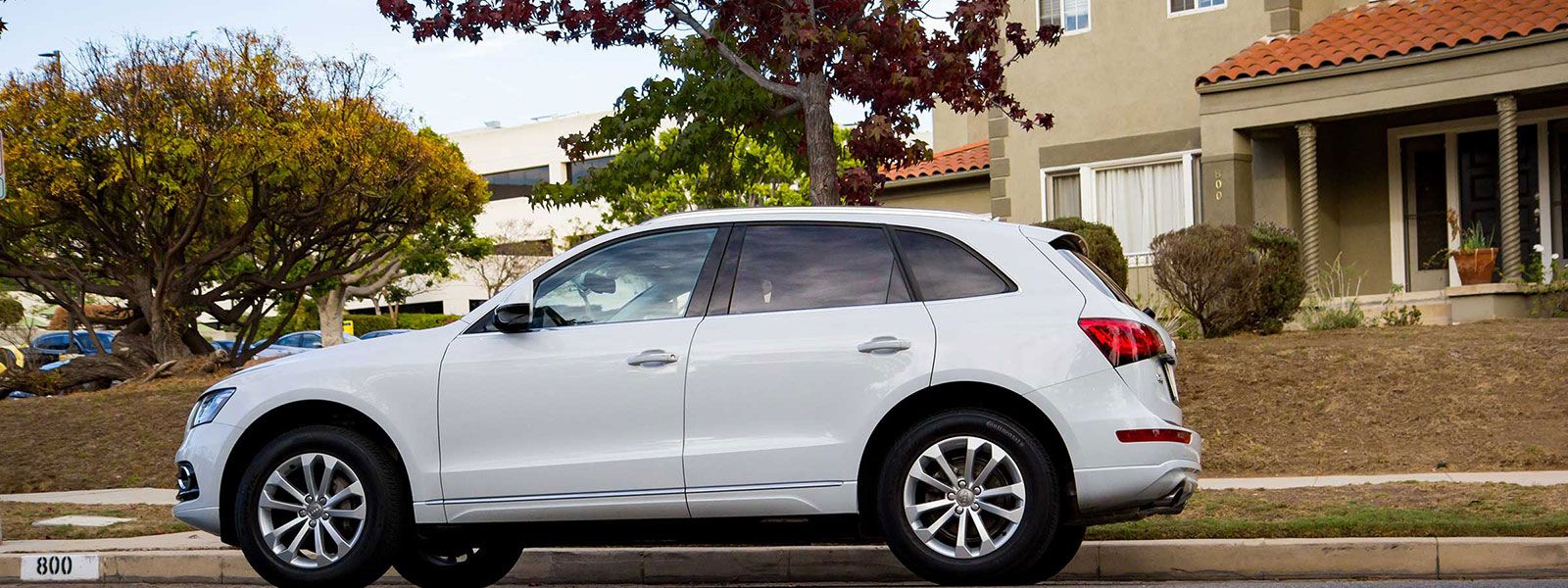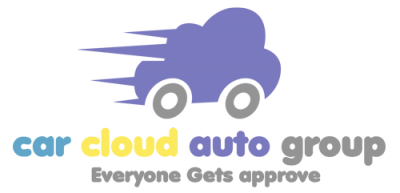Best Quality Used Cars for Sale in Stafford, VA
Posted Saturday, Apr 20, 2024
Unlocking the Secrets: How to Score the Best Quality Used Cars for Sale in Stafford, VA
Are you in the market for a used car in Stafford, VA? Finding the Best Quality Used Cars for Sale in Stafford, VA can feel like unraveling a mystery, but fear not! We are here to share the secrets to scoring the best deals on pre-owned vehicles in Stafford. From researching to negotiating and making the final purchase, this guide will walk you through every step of the process.
Whether you're a first-time buyer or a seasoned expert, our tips and tricks will help you avoid common pitfalls and find the perfect used car that meets your needs and budget. We understand that buying a used car can be a daunting task, but armed with the right knowledge, you can make a confident and informed decision.
Our comprehensive guide will cover everything from finding reputable dealerships and understanding market value to inspecting the car's condition and test-driving it. We'll also provide insights on important factors to consider, such as mileage, history reports, and maintenance records.
Unlock the secrets to scoring the best quality used cars in Stafford, VA, and embark on your journey toward finding the perfect ride for your lifestyle.
The Importance of Buying the Best Quality Used Cars for Sale in Stafford, VA
When it comes to purchasing a used car, quality should be your top priority. Buying a reliable and well-maintained vehicle will not only save you money in the long run but also provide peace of mind. Quality used cars have undergone thorough inspections and are typically backed by warranties or guarantees, ensuring that you're getting a vehicle that is in good condition.
One of the key advantages of buying a used car is affordability. Used cars generally have a lower price tag compared to their brand-new counterparts, allowing you to get more value for your money. However, it's important to strike a balance between affordability and quality. While it may be tempting to opt for the cheapest used car available, it's crucial to consider factors such as the car's condition, maintenance history, and overall reliability.
By investing in a quality used car, you can avoid the headaches and expenses associated with frequent repairs and breakdowns. Prioritizing quality will not only provide you with a reliable mode of transportation but also ensure that your investment holds its value over time.
Where to Find Used Cars for Sale in Stafford, VA
Now that you understand the importance of buying a quality used car, the next step is to find reputable sources for the Best Quality Used Cars for Sale in Stafford, VA. There are several avenues you can explore when searching for pre-owned vehicles, each with its own advantages and considerations.
- Dealerships: One of the most common places to find used cars for sale is at dealerships. Stafford, VA is home to numerous reputable dealerships that specialize in selling both new and used vehicles. Dealerships often have a wide selection of cars to choose from, allowing you to compare different makes, models, and price ranges. Additionally, dealerships typically provide warranties and financing options, making the buying process more convenient.
- Online Marketplaces: Another popular option for finding used cars is through online marketplaces such as AutoTrader, CarGurus, and Craigslist. These platforms allow private sellers and dealerships to list their vehicles for sale, providing a vast inventory for buyers to browse. Online marketplaces often include detailed descriptions, photos, and contact information, making it easier to narrow down your options and connect with sellers.
- Classified Ads: Traditional classified ads, both in print and online, can also be a valuable resource for finding used cars in Stafford, VA. Local newspapers and websites often have dedicated sections for classified ads, where individuals and dealerships advertise their vehicles. While the selection may be more limited compared to online marketplaces, classified ads can still yield potential options, particularly if you're looking for a specific make or model.
When exploring these different avenues, it's important to take your time and conduct thorough research. Read customer reviews, compare prices, and inquire about the vehicle's history and condition before making any commitments. This will help you narrow down your options and ensure that you're dealing with reputable sellers.
Researching and Evaluating Used Cars
Once you've identified potential Best Quality Used Cars for Sale in Stafford, VA, the next step is to conduct detailed research and evaluation. This will involve gathering information about the vehicle's make, model, year, mileage, and overall market value. By arming yourself with this knowledge, you'll be able to make a more informed decision and negotiate effectively with sellers.
- Vehicle Specifications: Start by researching the specifications of the make and model you're interested in. Look for information about the car's performance, features, and reliability. Understanding the strengths and weaknesses of a particular vehicle will help you assess its suitability for your needs.
- Market Value: Determine the approximate market value of the used car you're considering. This can be done by consulting online resources such as Kelley Blue Book or Edmunds, which provide estimated values based on the vehicle's condition, mileage, and other factors. Knowing the market value will give you a baseline for negotiation and help you identify any overpriced listings.
- Ownership History: Request the vehicle's ownership history from the seller or obtain a vehicle history report. This will reveal important information such as the number of previous owners, any accident or damage history, and whether the car has a salvage title. A clean ownership history is typically a positive indication of the vehicle's overall condition and reliability.
Researching and evaluating used cars requires time and effort, but it is an essential step in the buying process. By gathering as much information as possible, you'll be better equipped to make a well-informed decision and avoid potential pitfalls.
Checking the Vehicle History Report
One of the most important documents to review when considering a used car is the vehicle history report. This report provides a detailed account of the car's past, including any accidents, repairs, or other incidents that may have affected its condition. By reviewing the vehicle history report, you can gain valuable insights into the car's reliability and overall condition.
There are several reputable companies that provide vehicle history reports, such as Carfax and AutoCheck. These reports compile information from various sources, including insurance companies, repair facilities, and government agencies, to create a comprehensive record of the car's history. While these reports may incur a small fee, they are well worth the investment as they can potentially save you from purchasing a car with significant issues.
When reviewing the vehicle history report, pay attention to the following key areas:
- Accident History: Check for any reported accidents, including the severity of the damage and whether the car was declared a total loss. This information will help you assess the car's structural integrity and potential long-term effects.
- Maintenance Records: Look for evidence of regular maintenance and servicing. A well-maintained car is more likely to be in better condition and have fewer mechanical issues.
- Title and Ownership: Verify that the car's title is clear and not salvaged. Additionally, check the number of previous owners, as a high turnover could indicate potential problems with the vehicle.
- Odometer Reading: Ensure that the reported mileage aligns with what the seller claims. An unusually low mileage may indicate tampering, while a high mileage could affect the car's overall value and remaining lifespan.
By carefully reviewing the vehicle history report, you can make a more informed decision about the used car you're considering. If the report raises any red flags or reveals significant issues, it may be best to move on to other options.
Inspecting the Used Car in Person
Once you've narrowed down your options and conducted preliminary research, it's time to inspect the used car in person. This step is crucial as it allows you to assess the vehicle's condition firsthand and identify any potential issues that may not be apparent in online listings or photos.
When inspecting a used car, keep the following tips in mind:
- Exterior Condition: Start by examining the car's exterior for any signs of damage or poor repairs. Look for dents, scratches, or mismatched paint, as these could indicate previous accidents or inadequate repairs. Pay particular attention to the body panels and door gaps, ensuring they are aligned and symmetrical.
- Interior Condition: Step inside the car and inspect the interior for wear and tear. Check the seats, dashboard, and carpets for any signs of damage or excessive wear. Additionally, test all the buttons, switches, and electrical components to ensure they are in working order.
- Mechanical Components: Open the hood and inspect the engine bay for any leaks, loose belts, or damaged components. Check the fluid levels and the condition of the battery. If possible, start the engine and listen for any unusual noises or vibrations.
- Tires and Suspension: Examine the tires for signs of uneven wear or low tread depth. Uneven wear could indicate alignment or suspension issues. Additionally, check the suspension by bouncing each corner of the car. If the car continues to bounce or feels excessively soft, there may be suspension problems.
- Test Drive: Finally, take the car for a test drive. Pay attention to the car's acceleration, braking, steering, and overall handling. Listen for any unusual noises or vibrations, and test the car's various features and systems.
During the inspection, don't hesitate to ask the seller questions about the car's maintenance history, any recent repairs, or any issues they are aware of. A transparent and knowledgeable seller is more likely to provide accurate information and instill confidence in the vehicle.
Test Driving the Used Car
Test driving a used car is an essential step in the buying process as it allows you to assess the car's performance and overall driving experience. It's important to be thorough during the test drive and pay attention to various aspects of the car's functionality.
Here are some key points to consider during the test drive:
- Acceleration and Power: Test the car's acceleration by merging onto a highway or overtaking slower vehicles. Ensure that the car responds promptly and smoothly to throttle inputs. If the car feels sluggish or lacks power, it could indicate mechanical issues.
- Braking: Test the car's braking performance by applying the brakes firmly at different speeds. The car should come to a stop smoothly without any pulling to one side or excessive noise. If you notice any vibrations or unusual noises during braking, there may be issues with the brakes or suspension.
- Steering and Handling: Evaluate the car's steering response and handling by navigating through various road conditions. The steering should feel precise and responsive, with no excessive play or vibrations. Pay attention to how the car corners and handles bumps, ensuring a comfortable and controlled ride.
- Noise and Vibration: Listen for any unusual noises or vibrations during the test drive. Unusual noises could indicate mechanical issues, while excessive vibrations may point to problems with the suspension or tires.
- Comfort and Ergonomics: Consider the overall comfort and ergonomics of the car. Assess the seating position, visibility, and ease of use of various controls and features. Ensure that the car provides a comfortable and enjoyable driving experience.
It's also worth testing the car's various features such as the air conditioning, sound system, and any advanced safety features. By thoroughly evaluating the car's performance and comfort during the test drive, you'll gain a better understanding of whether it's the right fit for you.
Negotiating the Price and Terms
Once you've found a used car that meets your requirements and has passed your thorough inspection and test drive, it's time to negotiate the price and terms with the seller. Negotiating can be an intimidating process, but with the right approach and preparation, you can secure a fair deal.
Here are some tips for negotiating the price and terms of a used car:
- Research Comparable Listings: Before entering into negotiations, research similar used cars in the market to determine their prices. This will provide you with a benchmark for the car's value and give you leverage during negotiations.
- Point Out Flaws: If you've identified any issues or flaws during the inspection, use them as negotiation points. Mention specific repairs or maintenance the car may require and factor them into your offer.
- Be Willing to Walk Away: Don't be afraid to walk away if the seller is not willing to meet your desired price. There are always other options available, and showing that you're willing to walk away can often lead to more favorable negotiations.
- Consider Additional Costs: Take into account any additional costs associated with the purchase, such as taxes, registration fees, and insurance. These costs can add up, so factor them into your overall budget and negotiation strategy.
- Be Flexible: While it's important to have a clear budget and negotiation goals, be open to compromise. Negotiations are a give-and-take process, and finding a middle ground that satisfies both parties can result in a successful deal.
Remember to always be respectful and professional during negotiations. Building a rapport with the seller can go a long way in reaching a mutually beneficial agreement.
Financing Options for Used Cars
When purchasing a used car, financing options are an important consideration. Unless you're paying in full with cash, you'll need to explore financing options to cover the cost of the vehicle. Thankfully, there are several avenues you can explore to secure financing for your used car purchase.
- Bank or Credit Union: One of the most common options is to obtain a loan from a bank or credit union. Approach your local bank or credit union and inquire about their auto loan terms and interest rates. It's advisable to get pre-approved for a loan before visiting dealerships or negotiating with private sellers.
- Dealership Financing: Many dealerships offer in-house financing options for used cars. These arrangements typically involve the dealership acting as a middleman between you and a lending institution. While convenient, dealership financing may come with higher interest rates and additional fees. Be sure to carefully review the terms and compare them to other financing options.
- Online Lenders: Online lenders have become increasingly popular in recent years, offering competitive rates and convenient application processes. Platforms such as LendingClub and Capital One Auto Finance provide access to a network of lenders, allowing you to compare rates and terms from the comfort of your own home.
Before committing to any financing option, carefully review the terms, interest rates, and repayment plans. Ensure that the loan fits within your budget and that you fully understand the obligations and responsibilities associated with the financing agreement.
Choosing a Reliable Used Car Dealership in Stafford, VA
When searching for a used car in Stafford, VA, it's essential to choose a reliable dealership that is a priority.


